An exciting opportunity has arisen through collaborations between the Centre for Health Psychology at Staffordshire University and The Hollies Pupil Referral Unit for a bursary for two years for a full time trainee Health Psychologist. The trainee will be based within The Hollies Pupil Referral Unit in Stafford.
The Hollies PRU is a double district PRU serving the Stafford and South Staffordshire districts. We provide education for any young person without a school place. We currently serve 13 secondary schools, 7 middle schools and all primary schools. The Hollies is maintained by Staffordshire County Council and provides education for children who are excluded, risk of exclusion, or otherwise unable to attend a mainstream or special maintained school. The local authority has a duty under section 19 of the Education Act 1996 to provide suitable education for children of compulsory school age who cannot attend school. Very often such pupils are described as displaying EBD – Emotional and Behavioural Difficulties, exasperated by unsettled domestic situations, a propensity towards criminal behaviour, bullying, or (conversely) having been the victim of bullying. A PRU is treated the same as any other type of school, subject to the same inspections from Ofsted. Since September 2010, some PRUs are referred to as “Short Stay Schools”, although the government still broadly refers to them as PRUs or Alternative Provision (APs). We currently have 57 pupils aged 11-16 on roll and 10 primary pupils.
The work will involve developing face-to-face and group interventions to promote physical health with students, developing health psychology-related training for students and staff, and conducting research to explore factors influencing aspects of physical health of this group of students. The role will also involve supporting some lessons and supporting the class teacher, contributing to staff and multi-agency meetings and contributing to whole school CPD. The candidate would be expected to engage with the school, and take part in all aspects of the school day.
The role will be undertaken in conjunction with training as a full-time student on the Professional Doctorate in Health Psychology at Staffordshire University. The bursary is fixed at £12,000 per year, for two years, and presents a unique opportunity for a highly motivated and professional person to complete their health psychology training, directly supported by The Hollies. (The bursary comprises fees of £6,200 per year paid and a contribution of £5,800 per annum towards living and study costs).
Person Specification
In order to apply for this bursary, applicants must have the following skills, experience and qualifications (click here for the bursary advert):
Essential
• Hold an honours degree recognised by the British Psychological Society as offering Graduate Basis for Chartership;
• Have completed British Psychological Society accredited Stage 1 training in Health Psychology. That is either have been awarded a BPS accredited MSc in Health Psychology with a grade of Merit (or 60% average ) or above, or the BPS Stage 1 qualification in health psychology with a grade of 60% or more.
Desirable
• An interest in working with children who are disaffected and disadvantaged aged 4-16, often with mental health issues;
• An interest in collaborative working.
Please note: students whose first language is not English must have achieved a minimum of Level 7 across all categories on IELTS. Once successful, the applicant would be expected to pass all statutory clearances such as DBS, Occupational Health Checks, Self-Declaration of General Good Character and Good Health Form, and Contract of Professional Behaviour before they engage with the programme.
To Apply
To apply please send or e-mail a covering letter and CV with contact details of two referees to Dr Rachel Povey (r.povey@staffs.ac.uk) by noon on 18th July 2017.
Interviews will be held in Stoke-on-Trent on 20th July 2017.
For any further information, please contact Dr Rachel Povey (r.povey@staffs.ac.uk).
Staffordshire University – The Home of Health Psychology
Staffordshire University’s Centre for Health Psychology is a  centre of excellence for teaching and research in Health Psychology, and is home to Staffordshire’s BPS Accredited Stage 1 MSc in Health Psychology and Stage 2 Professional Doctorate in Health Psychology. The Centre for Health Psychology is part of the Staffordshire Centre for Psychological Research.
centre of excellence for teaching and research in Health Psychology, and is home to Staffordshire’s BPS Accredited Stage 1 MSc in Health Psychology and Stage 2 Professional Doctorate in Health Psychology. The Centre for Health Psychology is part of the Staffordshire Centre for Psychological Research.
Keep updated with the latest Health Psychology news from Staffordshire University via following us on @StaffsPsych and via the #HealthPsychStaffs hashtag.
For further information about Health Psychology courses and research at Staffordshire University please visit the following webpages:
 The Conversation: Just like humans, more cats and dogs are living with chronic health conditions
The Conversation: Just like humans, more cats and dogs are living with chronic health conditions centre of excellence for teaching and research in Health Psychology, and is home to Staffordshire’s BPS Accredited Stage 1 MSc in Health Psychology and Stage 2 Professional Doctorate in Health Psychology. The Centre for Health Psychology is part of the Staffordshire Centre for Psychological Research.
centre of excellence for teaching and research in Health Psychology, and is home to Staffordshire’s BPS Accredited Stage 1 MSc in Health Psychology and Stage 2 Professional Doctorate in Health Psychology. The Centre for Health Psychology is part of the Staffordshire Centre for Psychological Research.







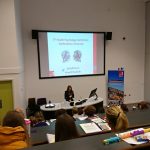
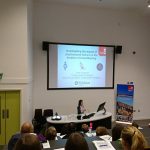
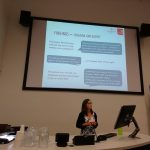
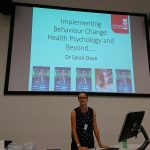
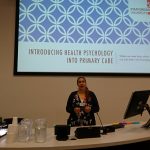
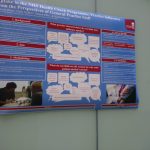





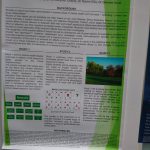
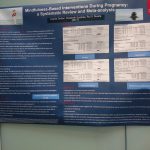
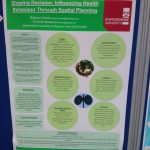
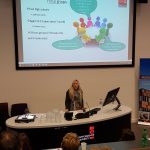
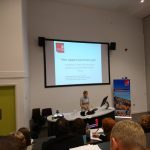
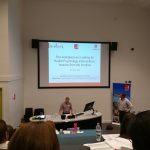
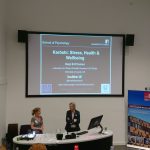

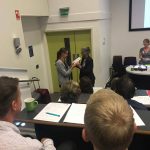







 in the use of ‘smart study drugs’ by university students in the UK, Dr Robert Dempsey (Lecturer in Psychology & Co-director of the
in the use of ‘smart study drugs’ by university students in the UK, Dr Robert Dempsey (Lecturer in Psychology & Co-director of the